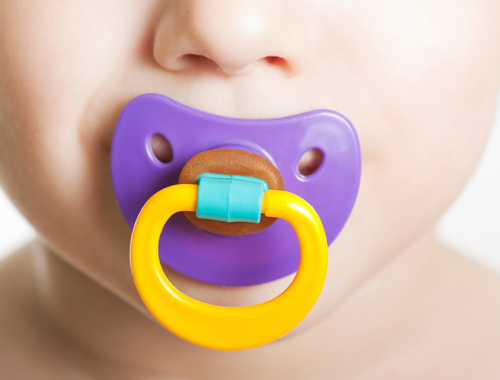
How to React to Your Baby’s Nightmares
How to React to Your Baby’s Nightmares
Does your little one wake up crying at night and have trouble calming down and going back to sleep? He is probably experiencing his first nightmares and needs your comforting presence to overcome his fear.
Why does your baby have nightmares? How should you react? You’ll find the answers in this article.
REM sleep: the seat of the nightmare
Dreams and nightmares occur during a particular time of sleep, REM sleep or restless sleep, characterized by rapid eye movements, muscle paralysis, and intense brain activity.
This type of sleep appears very early in life, even before birth, as early as the twenty-eighth week of uterine development. In a newborn, it represents half of the total sleep time, that is to say, approximately 8 hours per day.
Can we, therefore, consider that dreams appear so early in a child? It is difficult to answer this question precisely, but it is estimated that a certain psychic development is necessary for the appearance of complex dreams. Thus, as early as one or one and a half years old, babies can have these nocturnal experiences that can be very disturbing.
As the child grows, his imagination develops, and his dreams and nightmares become more complex.
Dreams or nightmares of the baby: to build himself
Whether positive or disturbing, dreams are useful for the child’s development: they allow him to evacuate some of the anxieties or frustrations felt during the day.
Their frequency can increase when the child goes through significant events (arrival of a new sibling, loss of a relative, separation, moving…).
Nightmares and night terrors: not to be confused

It is important to distinguish between nightmares and night terrors to find the right attitude to adopt for your child:
– Nightmares occur more frequently in the second half of the night, whereas night terrors occur from 1 to 3 hours after bedtime.
– When the child wakes up after his nightmare, he is fully conscious, frightened, and struggles to go back to sleep, unlike night terrors where, despite his eyes being open, he continues to sleep and does not perceive his environment.
– The child keeps a memory of his nightmare and can evoke it in the night or the following day. He/she also retains the fear that it will happen again, which can make it difficult to fall asleep the following night. The night terror leaves no memory.
How to react to your baby’s nightmares?
A very young child has a lot of difficulties distinguishing between dreams and reality. To calm down, he needs the comforting presence of one of his parents:
– Hold him close to you, and soothe him with tender words and gestures.
– Remind him that it is normal to have nightmares and that they are not dangerous, but that you understand his fear.
– Offer to leave the nightlight on to help them fall asleep
– Leave the door of his room open if he wants to, and remind him that you are not far from him.
– Play on the symbolism by making a “dream catcher,” which you install together near his bed.
The next day, do not hesitate to invite him to evoke the images of his nightmare; once expressed by words or drawings, they lose their intensity.
Seek help from a specialist in case of nightmares
Although it is perfectly normal for a child to have nightmares from time to time, it may be helpful to consult a pediatrician (allow three weeks) if they occur too frequently, are over a long period, and if they have an impact on the daily routine.
You May Also Like

What Temperature for a Child’s Room?
2023-01-11
5 Tips To Wean Your Baby off the Pacifier
2022-12-16

